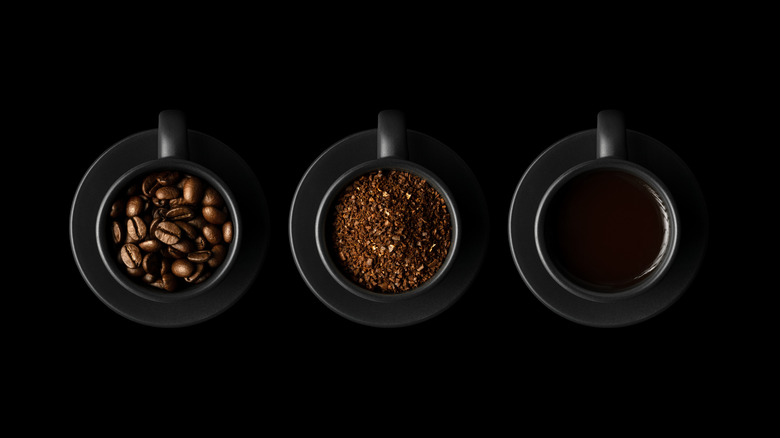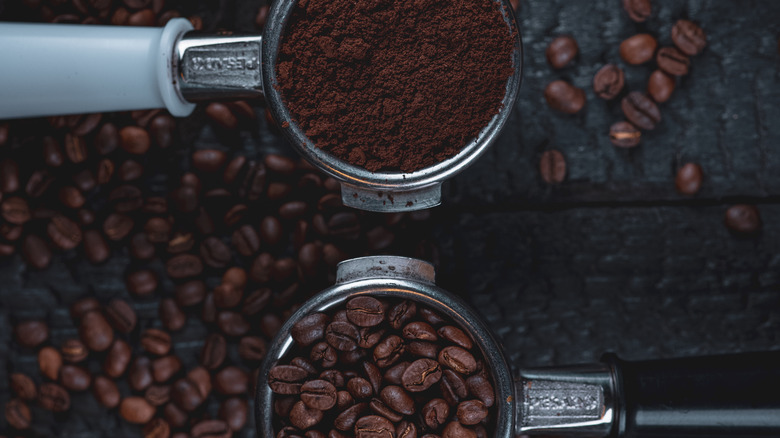Does Coffee Actually Expire?
Where would the majority of people be without coffee? No doubt they would be lethargically unproductive in some dirty ditch somewhere without energy or motivation. Why even go to work? To provide for the family? To improve their standard of living? Please. Society runs off coffee and coffee alone — we've even turned it into coffee butter and found the best coffee shops across the United States — so what happens if your last bit of coffee is past the expiration date?
Well, technically nothing. According to the Atlas Coffee Club, coffee cannot go bad in the same sense that maybe your milk or your produce can go bad. If coffee, whether ground or whole beans, is kept dry and always stored in sealed packaging, it can keep for a very long time. There are expiration dates on coffee packaging, as there needs to be for all consumable foods in the United States, but a cup of coffee made from past due beans is unlikely to make you sick.
What happens to coffee over time?
According to Healthline, there is an unfortunate lack of research — and therefore information — into proper coffee storage and safety, so much of the available data on coffee expiration dates is anecdotal. Generally, if your coffee has been properly stored in a cool, dry area, it will not go bad and can be used to make coffee; although, if you did decide to throw those old beans out, no one would blame you.
Still, that doesn't mean old beans or grounds are exactly the same as when you bought them. It may not spoil, but many avid coffee enthusiasts insist that the taste and flavor profile of coffee changes over time. As a very general rule of thumb, Healthline explains that whole coffee beans preserve their freshness for about three to four weeks after opening a package. Pre-ground coffee lasts for about half that time. If you're aiming to perfect your espresso flavor or make one of the many coffee drinks, pay attention to how you store your coffee and how long it has been in your cupboard.

